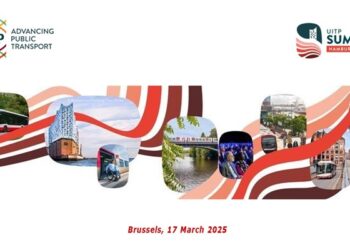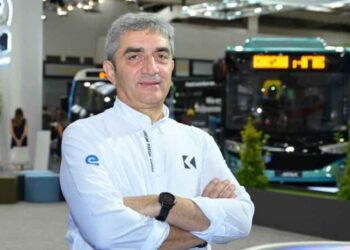“Volvo aims to be a leader in electrification and to be a partner for cities that wish to implement long-term sustainable public transport solutions for their inhabitants. We have been successful in Europe and in the Americas with electrified public transport solutions and we are now looking forward to bring our first electric buses in to Australia,” says Hakan Agnevall, President of Volvo Buses.
Four Volvo Electric Buses will be delivered to the PTA as part of the existing 900 Bus Supply Agreement between Volvo and Transperth which was signed in March 2019. The Agreement includes provisions for the introduction of alternative powered vehicles into the public transport bus network when the technology became available in Volvo’s Australian product line.
“We are excited to be partnering with PTA in Perth for our first electric buses in Australia. Our relationship with the PTA now spans over a decade and in years to come the city of Perth will indeed be a Volvo city with 100% of the bus fleet being Volvo. Volvo’s contract with PTA included a technology roadmap that allowed PTA to access diesel, self-charging electric and battery-electric vehicles over time. PTA can access
the variety of tools available to them and match the technology to the route and need,” said David Mead, Vice President Volvo Buses Asia Pacific.
Introducing alternate technologies is nothing new for PTA and Volvo. When Volvo came to market with their hybrid buses in 2013, the two parties conducted a successful trial of the bus in Perth – which not only allowed Volvo to prove the concept, but grow hybrid bus sales across Australia.
“Trialling new, green technology is a great use of our public transport network, already one of the most environmentally friendly ways to get around Perth,” said Western Australian Transport Minister Rita Saffioti.
“This is the first time we have trialled electric buses on a CAT route and I’m excited to see what commuters think about this new technology,” she said.
The units will be all-electric 11.7-metre long, 2.5 metre wide vehicles with local Australian bodies designed and built by Volgren Australia.
Whilst these units will be the first of their kind for Volvo in the Asia-Pacific region, the chassis’ are based on established Volvo technology already implemented in Europe.
“The Volvo electric driveline has been well proven as the backbone for our complete electric buses in Europe. By delivering the product in chassis form, we can work with long term partners such as Volgren to assemble the bus here in Australia. It also has allowed us to create new climate options for the vehicle, more suited to Australian conditions,” said David Mead.
While handover of the first electric buses to the PTA is not scheduled until late next year, the planning is well underway. Implementing electric vehicles involves many more stakeholders than a traditional bus sale – with Volvo quoting that the planning for this project started last year.
“This project is about much more than the buses. We have worked with the PTA on a number of areas including simulating the routes to create our charging strategy, charging infrastructure, understanding capital works needs in the depot, training of staff, safety elements, certification and standards compliance. That means we are creating a scalable, end to end implementation plan that can be replicated in the future,” added David Mead.
Whilst Volvo have extensive experience in Electric Buses, full commercialisation of the localised electric bus solution for Australia will be 2022.


































